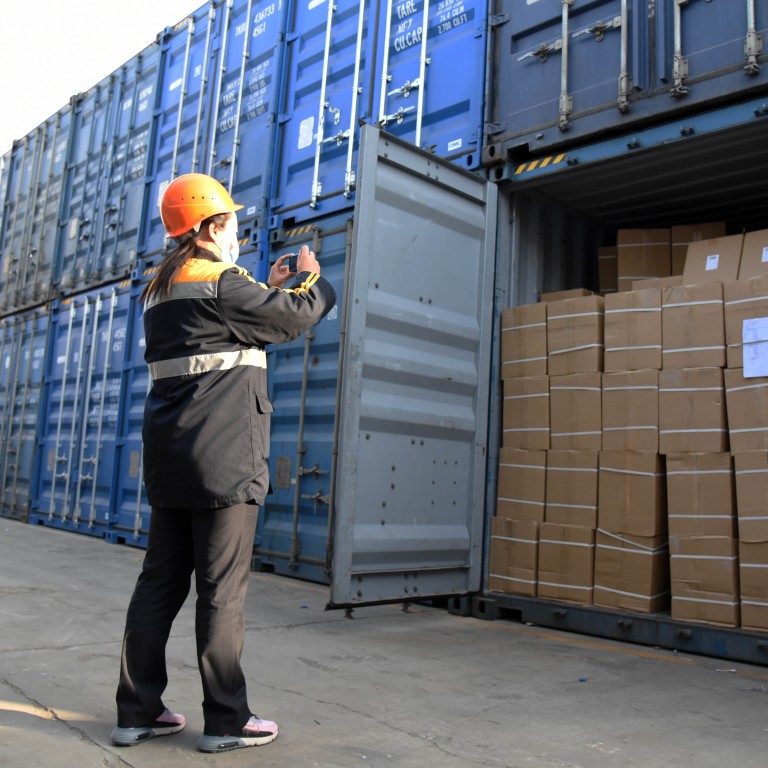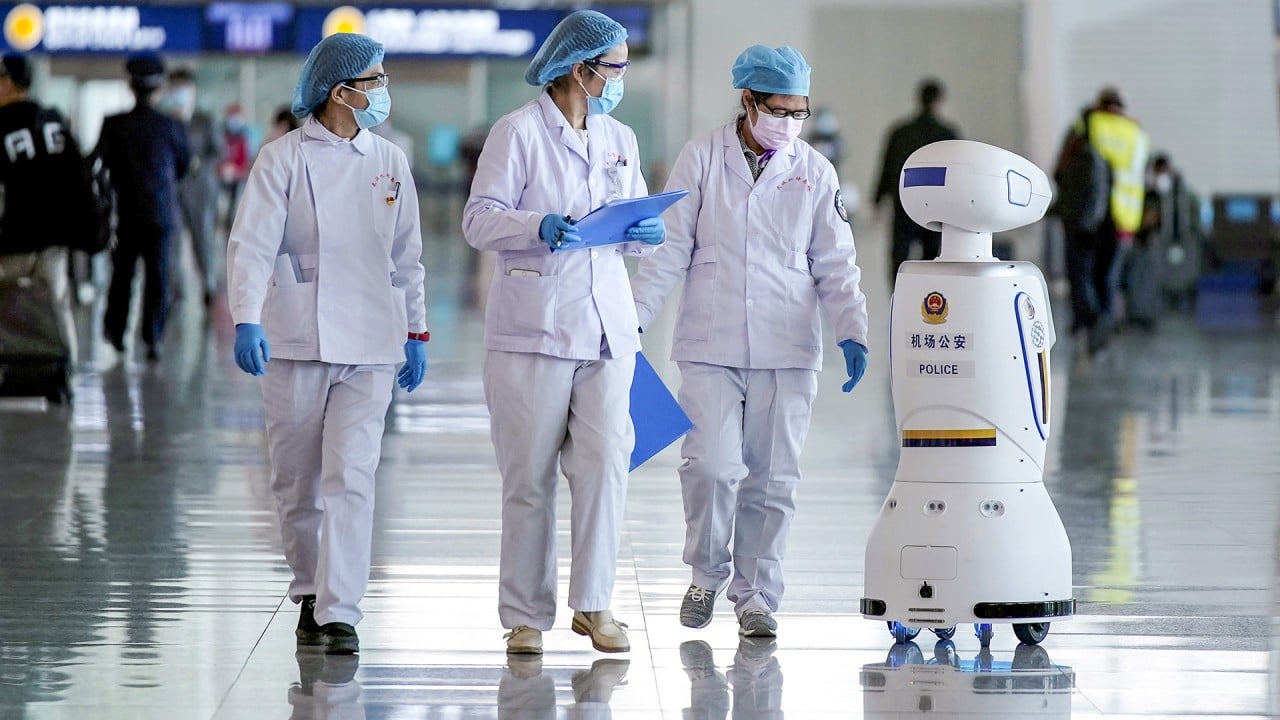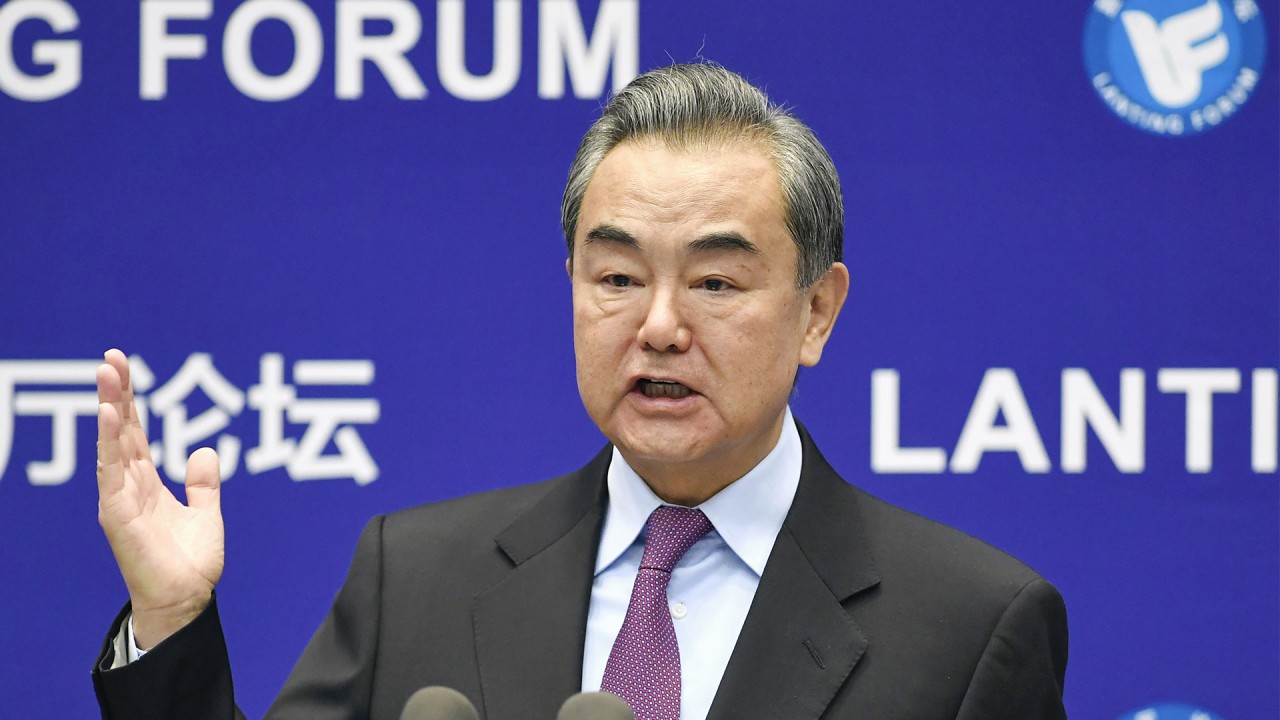
Biden push to reduce US dependence on foreign suppliers in key sectors ‘faces many hurdles’
- US President Joe Biden has ordered a review of American supply chains for critical products including semiconductors, with China clearly a target
- Observers say relocating production will be difficult, and warn the move could have an impact on Chinese high-end electronics in the near term
Biden’s order did not name China, but his remarks announcing the initiative made clear it was a target.
We shouldn’t have to rely on a foreign country, especially one that doesn’t share our interests, our values, in order to protect and provide [for] our people during a national emergency
“We shouldn’t have to rely on a foreign country, especially one that doesn’t share our interests, our values, in order to protect and provide [for] our people during a national emergency,” Biden said at the signing.
“Building resilience will mean increasing our production of certain types of elements here at home. It means working more closely with our trusted friends and partners – nations that share our values – so that our supply chains can’t be used against us as leverage.”
But to relocate elements of the global supply chain for these high-end industries back to the US, Washington will find it no less difficult than China’s attempt to boost domestic production of key hi-tech products, said a senior executive of a Chinese semiconductor firm who asked not to be identified.

03:07
China’s hi-tech industries capitalise on Covid-19 pandemic health care needs
“The status quo is that China wants to de-American-ise and the United States wants to de-Chinese-ise,” said the executive, whose company is now on the US Defence Department blacklist due to its links to the Chinese military.
“But both face great difficulties as globalisation has been going on for so long and the two countries already play their roles in the world’s technology or industry [supply] chains. They are hard to replace.”
Others believe the Biden administration’s action could directly impact the competitiveness and market share of China’s high-end electronics in the near term.
The coronavirus pandemic highlighted the vulnerability of key supply chains in the US and the West, which rely heavily on Chinese industrial capacity, said Liu Kaiming, who is closely connected to China’s export-oriented electronics industry.
Now they [the Western world] realise the severity of [their] dependence on China
“Now they [the Western world] realise the severity of [their] dependence on China. But at the same time, after so many years of globalisation, these key industries – suppliers and capital alike – have developed a complex hierarchy of interests in China,” Liu said.
He noted that the US had restricted sales of semiconductors to the largest buyer in the world, with China consuming up to 60 per cent of the global supply.
American firms in the designated sectors welcomed Biden’s initiative, sensing an opportunity for additional government financial support.
What semiconductors are and why China needs to make them itself
“We applaud President Biden’s urgency to assess and build additional US capacity across the transportation, energy and defence industrial base,” said Pini Althaus, chief executive of USA Rare Earth, a Texas-based rare earth mining company.
“Rare earths and critical minerals, including lithium, are essential to modern technology and require a robust, resilient strategy for US advanced manufacturing and national security,” he said.
“There is already surging demand for lithium and [electric vehicle] battery materials, and US manufacturers will need new sustainable supply to meet near-term goals this decade. We welcome President Biden’s leadership as we work to restore a full mine-to-magnet, mine-to-market US supply chain.”
Chad Bown, a senior fellow at the Peterson Institute for International Economics in Washington, said the latest Biden order reflected the confrontational nature of the former Trump administration’s approach to trade.

01:27
China calls for dialogue with the US to restore ‘deteriorating relations’
“The Trump move revealed, unsurprisingly, that it is probably not a good idea to start a trade war with a country on which you may be reliant for certain products,” said Bown, a former senior economist for international trade and investment in the White House on the Council of Economic Advisers.
“The Biden administration’s executive order signals that it is now doing the due diligence the Trump administration should have done to learn about potential American vulnerabilities that arise when you adopt a weaponised approach to trade policy.”
At a White House press briefing before the signing, the action was described as necessary to help the US compete in the world.
“Our supply chain should not be vulnerable to manipulation by competitor nations,” said Peter Harrell, the senior director for international economics and competitiveness on the National Security Council.
The Biden administration, which will also look to work with international partners to ensure stable and reliable supply chains, asked for a separate one-year review to look into the production of equipment for public health and biological preparedness; defence; transport and energy; and the agriculture and food production sectors.



